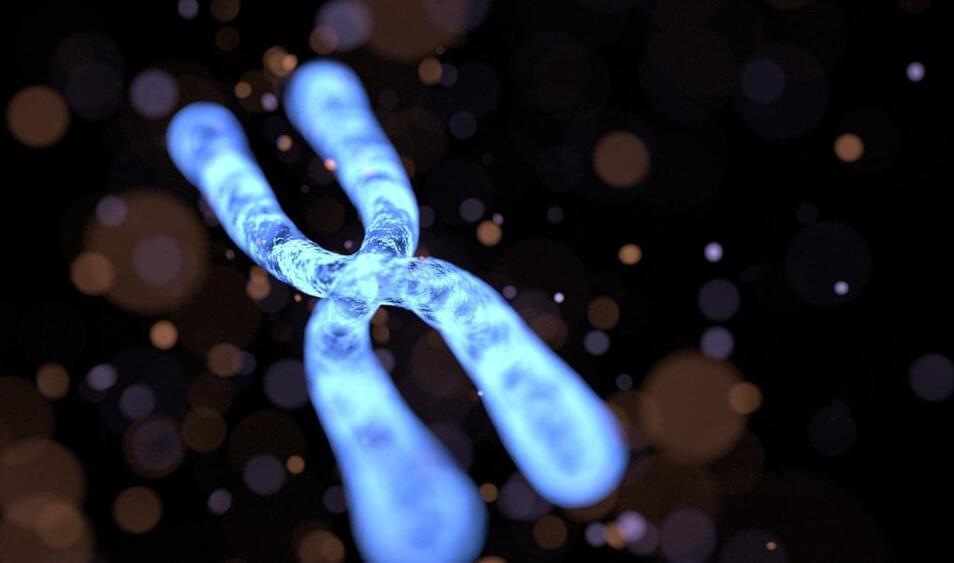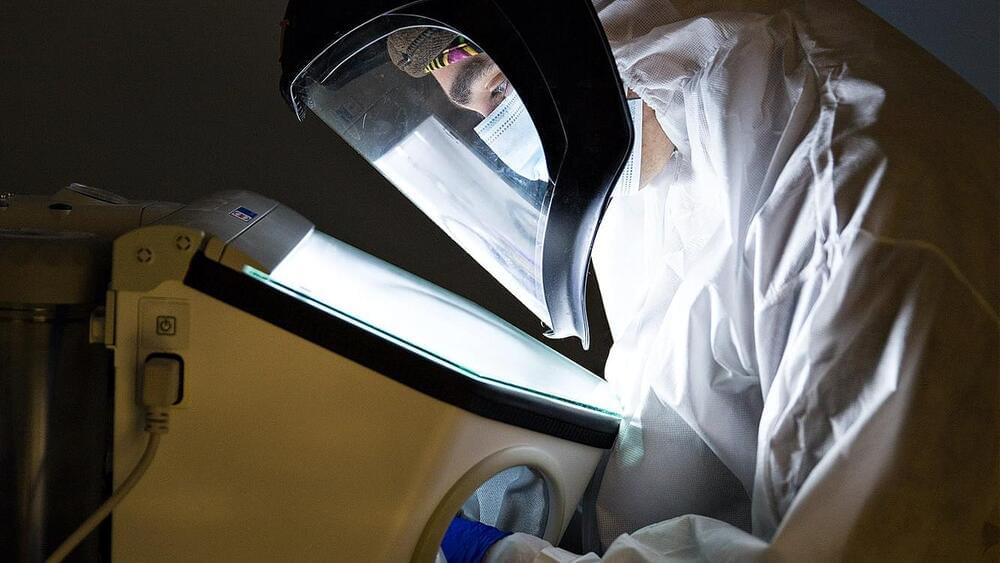The targeted gene used for the edit is conserved across evolution, suggesting the technique could work in more animals than just mice.



It makes space travel look cheap.
Humans have been looking at the stars for millenia, but it was just over 30 years ago that the Hubble Space Telescope launched, and we started getting a really good look at what’s out there. Hubble was beset with more than a decade of setbacks before its launch in 1990. Then, just after taking its position orbiting Earth, astronomers realized that something wasn’t right. It took engineers another three years to fix a manufacturing error that had left one of the mirrors misshapen by one-millionth of a meter. Ultimately, that imperfection was enough to render the telescope’s mirrors effectively useless. The long wait was worth it, though. The Hubble enabled dozens of breakthroughs in astronomy. It also took beautiful pictures. A recent version of its famous “Hubble Deep Field” image includes galaxies that are 13 billion lightyears away, making them the farthest objects ever photographed.
NASA is scheduled to soon launch what it calls the “successor” to Hubble: the James Webb Space Telescope. Like the Hubble, the Webb telescope is also designed to take extraordinarily precise measurements of “Ultraviolet and visible light emitted by the very first luminous objects [and which] has been stretched or ‘redshifted’ by the universe’s continual expansion and arrives today as infrared light.” Webb will also study objects closer to home, such as planets and other bodies in our solar system with the aim of determining more about their origin and evolution. Webb will also observe exoplanets located in their stars’ habitable zones, to search for signatures of habitability, and to learn about their chemical compositions.

OneZoom is a one-stop site for exploring all life on Earth, its evolutionary history, and how much of it is threatened with extinction.
The OneZoom explorer – available at onezoom.org – maps the connections between 2.2 million living species, the closest thing yet to a single view of all species known to science. The interactive tree of life allows users to zoom in to any species and explore its relationships with others, in a seamless visualisation on a single web page. The explorer also includes images of over 85,000 species, plus, where known, their vulnerability to extinction.
OneZoom was developed by Imperial College London biodiversity researcher Dr. James Rosindell and University of Oxford evolutionary biologist Dr. Yan Wong. In a paper published today in Methods in Ecology and Evolution, Drs Wong and Rosindell present the result of over ten years of work, gradually creating what they regard as “the Google Earth of biology.”

A lunar rock brought to Earth nearly half a century ago is revealing new information about the moon’s complex history.
NASA’s Apollo 17 mission left the moon to return to Earth 49 years ago Tuesday (Dec. 14) and humanity hasn’t been back to our natural satellite since. In a new study, researchers examined a moon rock collected by astronauts during Apollo 17. By measuring the composition of the rock, designated “troctolite 76535,” scientists have found patterns that point to a 20-million-year cooling period during the moon’s history, defying previous understanding of lunar evolution.

A new study suggests that systems governed by quantum mechanics do not show an exclusively linear evolution in time: in this way, they are sometimes able to unfold into the past and into the future simultaneously.
An international group of physicists concludes in a recent research published in the journal Communications Physics that quantum systems that evolve in one direction or another in time can also be found evolving in unison along both directions. This property shown by quantum systems in certain contexts breaks with the classical temporal conception, in which it is only possible to move forward or backward in time.
The work, carried out by scientists from the universities of Bristol (United Kingdom), Vienna (Austria), the Balearic Islands (Spain) and the Institute of Quantum Optics and Quantum Information (IQOQI-Vienna), shows that the limit between the time that going back and forth can be blurred in quantum mechanics. According to a press release from the University of Bristol, the new study forces us to rethink how the flow of time manifests itself in contexts in which quantum laws play a fundamental role.

Right after the Big Bang, in the Planck epoch, the Universe occupied a space region with a radius of 1.4 × 10-13 cm – remarkably, equal to the fundamental length characterizing elementary particles. Analogue to the way nearly all cells contain the DNA information required to build the entire organism, every region the size of an elementary particle had then the energy necessary for the Universe’s creation.
As the Universe cooled down, electrons and quarks were the first to appear, the latter forming protons and neutrons, combining into nuclei in a mere matter of minutes. During its expansion, processes started happening slower and slower: it took 380,000 years for electrons to start orbiting around the nuclei, and 100 million years for hydrogen and helium to form the first stars. Even more, it wasn’t until 4.5 billion years ago that our young Earth was born, with its oceans emerging shortly after, and the first microbes to call them home for the first time. Life took over our planet in what seems, on the scale of the Universe, a sheer instant, and turned this world into its playground. There came butterflies and tricked the non-existence of natural blue pigment by creating Christmas tree-shaped nanometric structures in their wings to reflect blue’s wavelength only; fireflies and lanternfish which use the chemical reaction between oxygen and luciferin for bioluminescence; and it all goes all the way up to the butterfly effect leading to the unpredictability of the weather forecasts, commonly known as the reason why a pair of wings flapping in Brazil can lead to a typhoon in Texas. The world as we know it now developed slowly, and with the help of continuous evolution and natural selection, the first humans came to life.
Without any doubt, we are the earthly species never ceasing to surprise. We developed rationality, logic, strategic and critical thinking, yet human nature cannot be essentially defined without bringing into the equation our remarkable appetite for art and beauty. In the intricate puzzle human existence represents, this particular piece has given it valences no other known being possesses. Not all beauty is art, but many artworks both in the past, as well as today, embody some understanding of beauty.
To define is to limit, as Oscar Wilde stated, and even though we cannot establish clear definitions of art and beauty. Yet, great works of art manage to establish a strong thread between the creator and receptor. In contrast to this byproduct of human self-expression that encapsulates unique creative behaviour, beauty has existed long before our emergence as a species and isn’t bound to it in any way. It is omnipresent, a metaphorical Higgs field that can be observed by the ones who wish to open their eyes thoroughly. From the formation of Earth’s oceans and butterflies’ blue wings to Euler’s identity and rococo architecture, beauty is a subjective ubiquity. Though a question remains – why does it evoke such pleasure in our minds? What happens in our brains when we see something beautiful? The question is the subject of an entire field, named neuroaesthetics, which identified an intricate whole-brain response to artistic stimuli. As such, our puzzling reactions to art can be explained by these responses similar to “mind wandering”, involving “thoughts about the self, memory, and future”– in other words, art seems to evoke our past experiences, present conscious self, and imagination about the future. There needs to be noted that critics of the field draw attention to the superficiality and oversimplification that may characterize our attempts to view art through the lenses of neuroscience.

The idea of Web 3.0 has been disappointing for Elon Musk and he has referred to it as BS. The reasons are unclear but might be soon unveiled.
TL;DR Breakdown.
Web 2.0 has ensured that the informational needs are fulfilled and has also opened ways for education, finance, banking, health, and other domains. As all these are integrated into a new space, we have the opportunity to see the evolution of the web.

In this episode, I talk to world-renowned biologist David Sinclair about aging and longevity. David rejects the notion that the deterioration of health is a natural part of growing old and asserts that aging is a disease itself that we need to reverse. But how will a reset of our biological clocks affect our interactions, responses to adversity, morality, and how we live our lives? We discuss the ethical implications of limitless lifespans and also touch on the topics of death, evolution, genetics, medicine, and data tracking.
Bio.
Dr. David Sinclair is a professor in the department of genetics and co-director of the Paul F. Glenn Center for Biology of Aging Research at Harvard Medical School and co-founder of the scientific journal Aging. He is best known for his work on understanding why we age and how to slow its effects. In addition to being a co-founder of several biotechnology companies, he’s the author of the book Lifespan: Why We Age – and Why We Don’t Have To. Dr. Sinclair was listed by TIME magazine as one of the “100 most influential people in the world”.
Website: sinclair.hms.harvard.edu.
Twitter: @davidasinclair.
Topics.
00:02:26 David’s “sticky beak” personality.